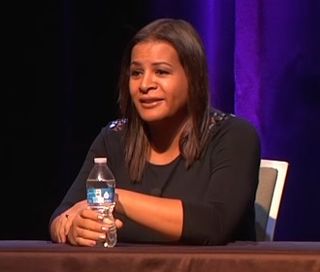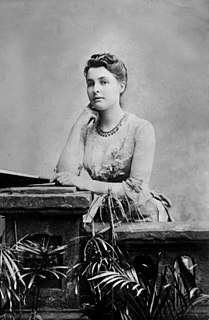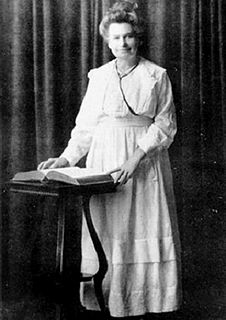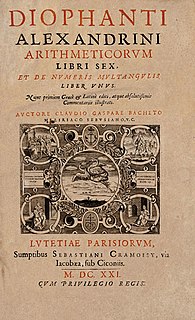A Quote by James Gleick
When the Lilliputians first saw Gulliver's watch, that "wonderful kind of engine...a globe, half silver and half of some transparent metal," they identified it immediately as the god he worshiped. After all, "he seldom did anything without consulting it: he called it his oracle, and said it pointed out the time for every action in his life." To Jonathan Swift in 1726 that was worth a bit of satire. Modernity was under way. We're all Gullivers now. Or are we Yahoos?
Related Quotes
There's a whole slew of wonderful speculation of flying in a fanciful way. Gulliver is one of the central examples; Swift has the hum of Arabian Nights in his ear with Gulliver's Travels. The difference is in scale - Gulliver as a kind of Sinbad kind of figure, the way he is picked up and carried. Just to finish up with Scheherazade, I do think that The Arabian Nights could be considered as a great book on women's position in the world.
I tell the truth and I don't try to sugarcoat things. But I also decided that if you don't use humor or satire, then it's just too dark all the time. And one of my favorite literary works is A Modest Proposal by Jonathan Swift. As you know, that was an enormously famous satire piece that was able to point out, you know, things to people in a different way. And I do believe that satire and humor can reveal truth in a way that sometimes doesn't get revealed through other means. And so I decided to, every now and then, use satire and humor as well.
When he went blundering back to God, His songs half written, his work half done, Who knows what paths his bruised feet trod, What hills of peace or pain he won? I hope God smiled and took his hand, And said, "Poor truant, passionate fool! Life’s book is hard to understand: Why couldst thou not remain at school?" A poem by Charles Hanson Towne
It had ceased raining in the night and he walked out on the road and called for the dog. He called and called. Standing in that inexplicable darkness. Where there was no sound anywhere save only the wind. After a while he sat in the road. He took off his hat and placed it on the tarmac before him and he bowed his head and held his face in his hands and wept. He sat there for a long time and after a while the east did gray and after a while the right and godmade sun did rise, once again, for all and without distinction.
He slouched back in his seat, looking tired, and leaned his face on his shoulder to look at me while he played with my hair. He started to hum a song, and then, after a few bars, he sang it. Quietly, sort of half-sung, half-spoken, incredibly gentle. I didn’t catch all the words, but it was about his summer girl. Me. Maybe his forever girl. His yellow eyes were half-lidded as he sang, and in that golden moment, hanging taut in the middle of an icecovered landscape like a single bubble of summer nectar, I could see how my life could be stretched out in front of me.
Still I made one excuse after another, and Jesus would answer, 'Go, and I will be with you'... Then Jesus said again, 'Go, and I will be with you.' I cried, 'Lord, I will go. Where shall I go?' And Jesus said, 'Go here, go there, wherever souls are perishing.' Praise the Lord for his wonderful goodness in revealing his word and will in such a wonderful way, to such a poor weak worm of the dust. I saw more in that vision than I could have learned in years of hard study. Praise His Holy Name. I saw that I must not depend on anything that I could do, but to look to Him for strength and wisdom.
I saw -- with shut eyes, but acute mental vision -- I saw the pale student of unhallowed arts kneeling beside the thing he had put together. I saw the hideous phantasm of a man stretched out, and then, on the working of some powerful engine, show signs of life, and stir with an uneasy, half-vital motion.
Clary glanced past him and asked, "Where's Magnus?" "He said it would be better if he didn't come. Apparently he and the Seelie Queen have some kind of history." Isabelle raised her eyebrows. "Not that kind of history," said Alec irritably. "Some kind of feud. Though," he added, half under his breath, "the way he got around before me, I woudn't be surprised.
His epitaph: This tomb hold Diophantus, Ah, what a marvel! And the tomb tells scientifically the measure of his life. God vouchsafed that he should be a boy for the sixth part of his life; when a twelfth was added, his cheeks acquired a beard; He kindled for him the light of marriage after a seventh, and in the fifth year after his marriage He granted him a son. Alas! late-begotten and miserable child, when he had reached the measure of half his father's life, the chill grave took him. After consoling his grief by this science of numbers for four years, he reached the end of his life.
There you are!” he shouted at them. “Father has half the castle turned out looking for you.” “Us?” Hadrian asked. “Yes.” Fanen nodded. “He wants to see the two thieves in his chambers right away.” “You didn’t steal the silver or anything, did you, Royce?” Hadrian asked. “I would bet it has more to do with your flirting with Lenare this afternoon and threatening Mauvin just to show off,” Royce retorted. “That was your fault,” Hadrian said, jabbing his finger at him.
"She (Minnie Ruth Solomon) was unusual because even though I knew her family was as poor as ours, nothing she said or did seemed touched by that. Or by prejudice. Or by anything the world said or did. It was as if she had something inside her that somehow made all that not count. I fell in love with her some the first time we ever talked, and a little bit more every time after that until I thought I couldn't love her more than I did. And when I felt that way, I asked her to marry me . . . and she said she would."
Why do some persons 'find' God in a way that others do not? Why does God manifest His Presence to some and let multitudes of others struggle along in the half-light of imperfect Christian experience? Of course the will of God is the same for all. He has no favorites within His household. All He has ever done for any of His children He will do for all of His children. The difference lies not with God but with us.


































